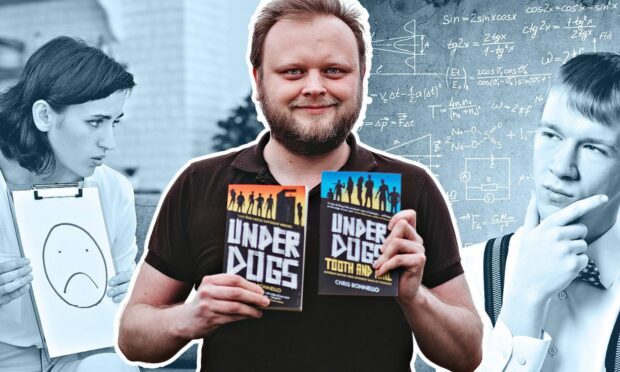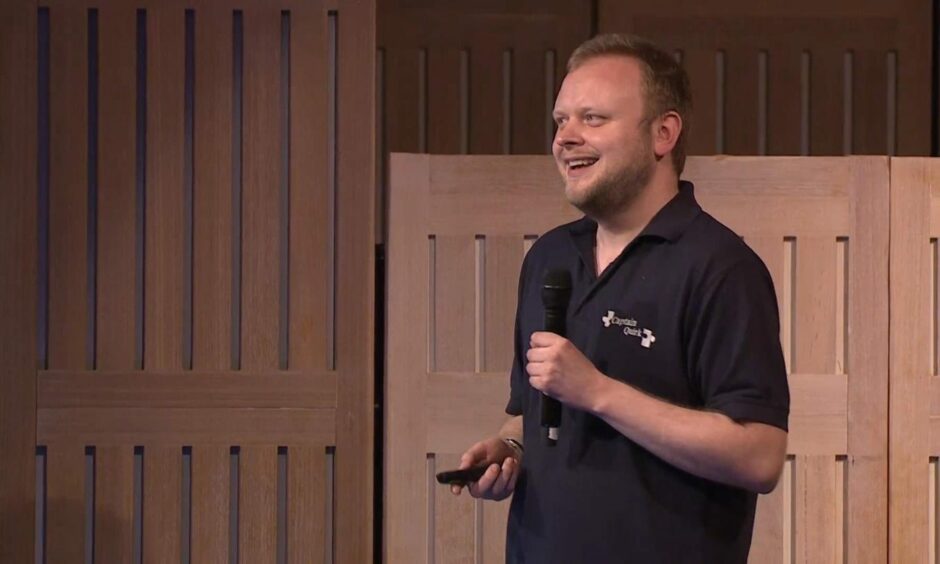An award-winning author has spoken out against inaccurate and problematic stereotypes of autism, ahead of a major north conference.
Chris Bonnello created his “heroic” characters to combat a feeling of under-representation in the media.
When it comes to autism, films that spring to mind often portray autistic characters as mathematical geniuses with an extraordinary memory and lack of empathy.
However, this isn’t always an accurate representation, and the teacher-turned-writer is calling for a change to the antiquated narrative.
Why is there a misconception that people with autism don’t feel empathy?
He will be among those on the panel at the virtual Highlands XpoNorth business conference later this month, where they will discuss such needed changes.
Alongside an educational and employment system that isn’t in his favour, Chris says there are many misconceptions still surrounding autism.
“The thing is with autistic people, we’re all different and we differ from each other for the same reason non-autistic people do,” he said.
“There’s a stereotype we’re all good at maths, we’re not all good maths – and I’d be the first to say that, but I’m aware I’m saying that as someone with a mathematics degree.
“Some of the more harmful stereotypes that exist is the misconception that people with autism don’t feel empathy and don’t care about others.
“In most autistic people’s experience, if anything we feel too much empathy.
“We really struggle with the idea that other people are suffering, it’s utterly heart breaking.”
He added: “The reason this misconception exists is because there’s such a thing as cognitive empathy as opposed to social empathy.
“This means looking at someone’s face and being able to decipher how they’re feeling, which is what autistic people struggle with.”
Need to overcome the ‘token’ autistic character
Chris’ award-winning Underdogs novels feature autistic heroes, and he feels this is important due to a lack of “meaningful” representation at the forefront.
He said: “You end up with a lot of token autistic characters where it’s like ‘Hey, we’re doing representation!’
“Unfortunately not all of that representation has been done with the feedback and inputs of autistic people.
“One common trope is that an autistic or disabled character needs to be overcoming their autism or disability which is harmful really.
“It may sound so lovely and inspirational but what it’s basically saying is that it’s bad.
“I’ve had people come to me and say ‘my son barely ever reads books, but I saw him read Underdogs and it’s the first time there’s a main character he can identify with.’
“That was massively powerful and on the other side of it, other people can see that autistic people are allowed to be the heroes as well,” he added.
The conference takes place over June 15-16, with more information at the XpoNorth website.
Read more:
Autism and work: How ‘spoken word beauty contest’ of interviews is penalising applicants
What are the signs of autism in children and how can I get support?



Conversation